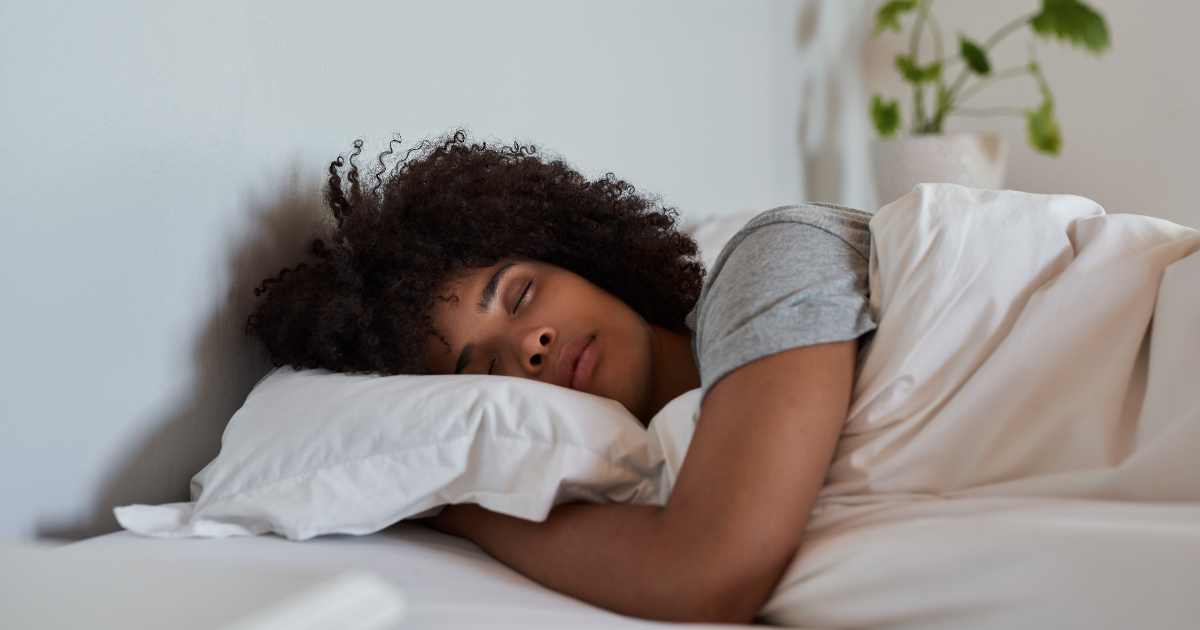The Surprising Way Botox Might Help You Sleep Better, According To Experts
Spoiler: It's not as far-fetched as you might think


Celebrity news, beauty, fashion advice, and fascinating features, delivered straight to your inbox!
You are now subscribed
Your newsletter sign-up was successful
We all know Botox (or more accurately, botulinum toxin type A) as the wrinkle-smoothing, skin-tightening injectable that has become as much a fixture in our beauty routines as vitamin C serum or SPF. But Botox’s roots are far from purely cosmetic—its debut in the 1970s was in operating theatres, not treatment rooms, as a pioneering therapy for eye muscle disorders.
And while we’ve been preoccupied with debating micro-dosing versus full-face rejuvenation, Botox has quietly been moonlighting as a therapeutic multitasker—tackling migraines, preventing excessive sweating and, most intriguingly, emerging as a potential ally in the quest for a good night’s sleep.
“People still think of Botox purely as an anti-ageing treatment, but its medical applications are far-reaching,” says Dr Hayder Ria, aesthetic doctor and founder of Harley Street Dermal. “By targeting overactive muscles, we can reduce the physical triggers that are disrupting sleep—including common complaints like teeth grinding and jaw clenching."
How Botox might help you sleep
Muscle tension—whether it’s in the jaw, neck, or shoulders—can be a stealthy sleep saboteur. When muscles stay contracted, they send a steady stream of discomfort signals to the brain, making it harder to drift into deep, restorative rest. Add in the micro-awakenings caused by clenching or grinding through the night, and your sleep cycles never quite hit their full, restorative stride. Over time, that constant low-level strain can leave you feeling as if you’ve run a marathon in your sleep—without the medal or the endorphin rush.
“When Botox is injected into the relevant muscles, it temporarily paralyses them and stops the movements of clenching and grinding during sleep,” explains Dr Ria. The effect is temporary, but last around three to four months before top-ups are needed. The result? Less muscle tension, reduced pain, and—if your sleep was being sabotaged by overactive muscles—a better night’s rest.
Botox for teeth grinding
Bruxism—teeth grinding and jaw clenching—is often a subconscious response to stress, anxiety, or dental misalignment. Over time, it can overwork the jaw muscles, causing pain and chipping away at quality sleep.
“Botox releases these masseter muscles, reducing grinding and discomfort by blocking the nerve signals that cause the muscles to contract,” says Dr Ria. Patients often notice not only a reduction in grinding, but also a softer jawline as the muscles gradually shrink from underuse.
Celebrity news, beauty, fashion advice, and fascinating features, delivered straight to your inbox!
Botox for TMJ disorders
Temporomandibular joint (TMJ) disorders can cause chronic pain in the face, jaw and neck and that discomfort can be enough to keep you tossing and turning at night.
“Botox can reduce the pain by calming overactive muscle spasms, reducing tension around the jaw and neck, and lowering inflammation, providing long-lasting relief,” says Dr Ria. By removing the source of tension, Botox can help restore more comfortable—and less interrupted—sleep.
Signs you might be grinding your teeth:
- Morning jaw ache or stiffness: your jaw muscles have been working overtime while you sleep.
- Dull headaches: often starting in the temples or behind the eyes when you wake up.
- Worn, chipped, or flattened teeth: tell-tale signs your teeth have been grinding against each other.
- Sensitive teeth: enamel wear from grinding can make teeth more reactive to hot, cold, or sweet foods.
- A clicking or 'popping' jaw: an indicator that your temporomandibular joint (TMJ) is under strain.
- Disturbed sleep: either from the grinding itself or the discomfort it causes.
- Partners complaining of grinding noises: you may not hear it, but they do.
The bottom line
While Botox isn’t a universal sleep aid, it can be a valuable option for those whose nights are disrupted by muscle-related issues such as bruxism or TMJ pain. By reducing muscle tension and discomfort, it may help pave the way for more restful sleep—especially when combined with other healthy sleep habits like relaxation techniques and using a supportive pillow.
As with any injectable treatment, it’s essential to consult a qualified medical professional to determine whether it’s the right approach for you and always have a face-to-face consultation before going ahead.

Lottie Winter is the Beauty Director at Marie Claire UK. With over a decade of beauty journalism under her belt, she brings a desire to cut through the noise and get to what really matters–– products that deliver, conversations that empower, and beauty that makes people feel like their best selves.